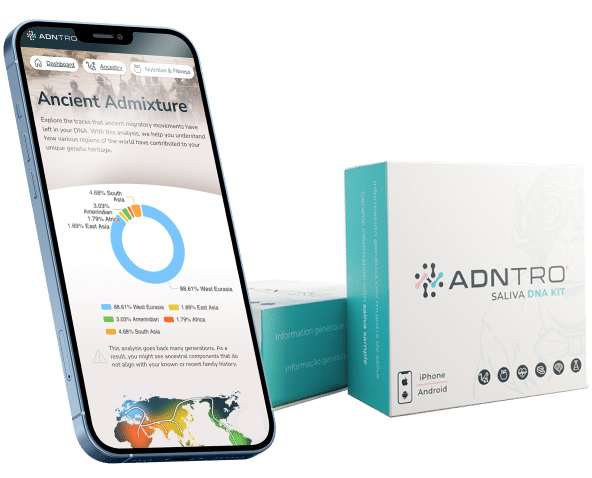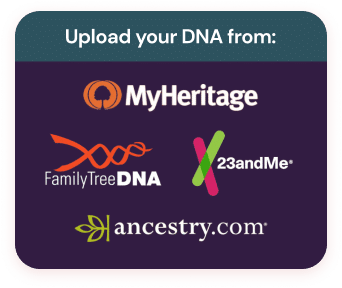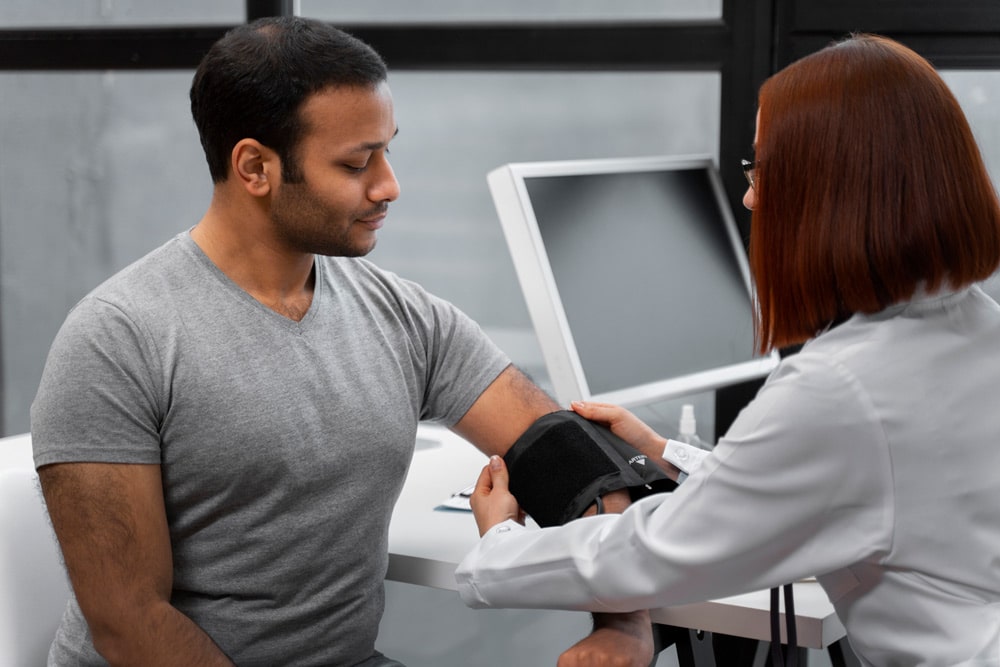What is breast cancer?
Breast cancer is a complex disease that affects millions of women worldwide. It is estimated that about 1 in 8 women develop breast cancer during their lifetime. It is also present in men, but the prevalence of this pathology is much lower (1 in 1,000 men).
This is a disease in which cells found in the mammary gland and breast tissues begin to grow abnormally and uncontrollably, forming a tumor. If not detected and treated in time, these cancerous cells can invade the surrounding tissues and even spread to other parts of the body. This process is known as metastasis.

That is why knowing the risk factors, such as family history, lifestyle, age (the older you get, the greater your exposure to environmental factors) and your genetic predisposition, is crucial. Recent advances in genetics have opened new avenues to understand and prevent this disease.
In this article, we explore a groundbreaking study on the genetic risk of breast cancer and how you can access your genetic risk through ADNTRO.
What types of breast cancer are?
There are two very distinct types of breast cancer: hereditary breast cancer and sporadic breast cancer.
Hereditary breast cancer
As its name suggests, hereditary breast cancer is one that is present over several generations in the same family. These "familial" mutations increase the risk of developing breast cancer over a person's lifetime.
In recent years, multiple genes related to breast cancer have been described. The BRCA1 and BRCA2 genes are, to date, the most important ones associated particularly with hereditary breast cancer. To get an idea of how important they are in this type of cancer, studies of the BRCA2 gene have shown that it is responsible for 45% of hereditary breast cancers in women.

However, hereditary breast cancers account for only 10% of all breast cancers. To assess the risk of developing this type of cancer, it is advisable to analyze the entire BRCA1 and BRCA2 gene using a technique known as whole exome sequencing.
Sporadic breast cancer
It is the most common type of breast cancer and is the result of genetic mutations favored mainly by our lifestyle. Breast cells become cancerous as a result of DNA mutations. These mutations are caused by the action of external agents or by the aging of the cells themselves.
However, genetic markers have been detected that predispose to non-hereditary breast cancer. This makes it of particular interest to assess, on an individual level, whether a woman has a higher than average risk.
If we compare the variants of hereditary cancer with those of sporadic cancer, the latter are more frequent in the population. Each of them slightly increases the total risk of the person. This genetic risk can be assessed with a genotyping test where these genetic variants located at specific points in the genome are analyzed.

How much does genetics influence sporadic breast cancer?
Genetic studies estimate that about 30% of the variability in susceptibility to breast cancer in a population is due to genetic factors (heritability), while the remaining 70% is due to environmental and lifestyle factors.
Among the factors non-genetic It is worth mentioning:
- Age:The cumulative effects of exposure to various environmental factors make advancing age the greatest risk factor for developing this type of cancer. The age of onset of hereditary breast cancer is considerably lower than that of sporadic cases. Women between 50 and 70 years of age are at the highest risk (about 4% of women of this age have breast cancer).

- Female reproductive cycle milestones: early menarche and late menopause have been associated with an increased risk of breast cancer. This is because the number of ovulatory cycles is maximized thus increasing the cumulative effect of estrogen doses on the mammary epithelium.
- Alcohol: there are studies that suggest that excessive alcohol consumption increases plasma estrogen concentrations, which may confer a small increase in the risk of developing this type of cancer.
- Physical exercise: physical activity is considered a protective factor against the development of breast cancer as it helps to reduce hormone levels (including estrogen).
However, genetics should not go unnoticed since the 30% heritability data, in addition to highlighting the influence of environment and lifestyle in the development of this pathology, points to the important role of genetics. For this reason, both factors must be taken into account when assessing this diseasegenetics modulates your risk of developing sporadic breast cancer.
Relative risk may be affected by genetic markers (applies only to females):
 12.5% of women develop breast cancer.
12.5% of women develop breast cancer. Nearly 93% of women at low genetic risk do not develop breast cancer.
Nearly 93% of women at low genetic risk do not develop breast cancer. More than 22% of women at high genetic risk develop breast cancer.
More than 22% of women at high genetic risk develop breast cancer.
Data obtained on 21,413 controls and 11,285 cases from UKB
.*This is the risk of suffering sporadic breast cancer and therefore BRCA1 and BRCA2 genes are not analyzed. For this, it is necessary to perform a whole genome or whole exome analysis.
What is genetic risk assessment about?
At ADNTRO we build on a pioneering scientific study, entitled "Polygenic Risk Scores for Predicting Breast Cancer and Breast Cancer Subtypes", is based on a dataset of 94,075 cases and 75,017 controls. The goal was to develop Polygenic Risk Scores (PRS) to predict estrogen receptor (ER)-specific breast cancer. The best performing PRS included 313 single nucleotide polymorphisms (SNPs).
The results showed that women in the highest 1% at risk were 4.37 and 2.78 times more likely to develop ER-positive and ER-negative disease, respectively. These findings are crucial for breast cancer prevention and treatment, as early detection of breast cancer is vital.

It is critical to understand that having a high genetic risk does not guarantee that you will develop breast cancer. According to research, about 12% of women will develop breast cancer at some point in their lives. However, a significant percentage of women with high genetic risk do not develop the disease and vice versa.
What actions can I take to face breast cancer?
Knowing your genetic risk allows you to take proactive measures such as changing your diet, exercising more or even changing your habits to reduce your risk.
If you are a member of ADNTRO, you can obtain your own genetic risk based on this study. This information can be of great value to you and your physician in making more informed decisions about your health and possible prevention strategies.
Your DNA has a lot to say about your health. At DNATRO, you can get personalized information based on cutting-edge research.Discover what your DNA says about your risk of breast cancer with the DNA TEST from ADNTRO!














